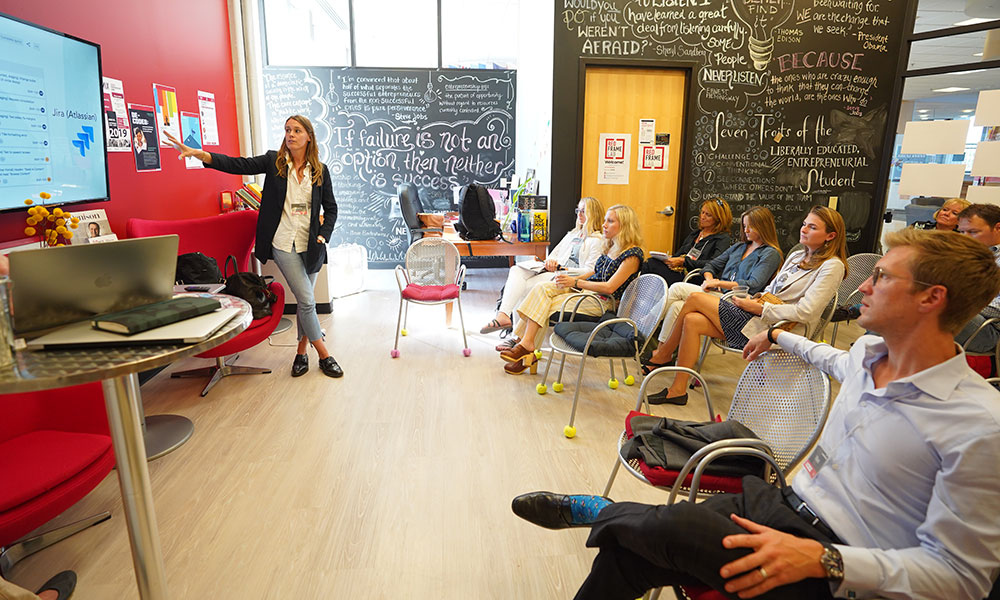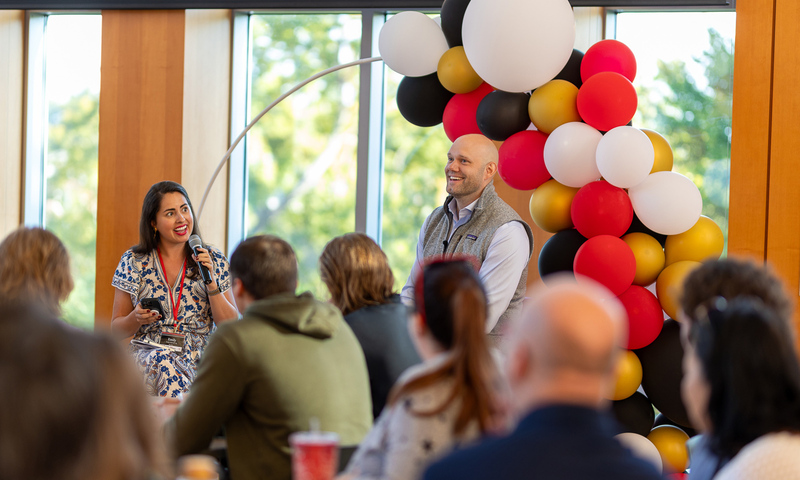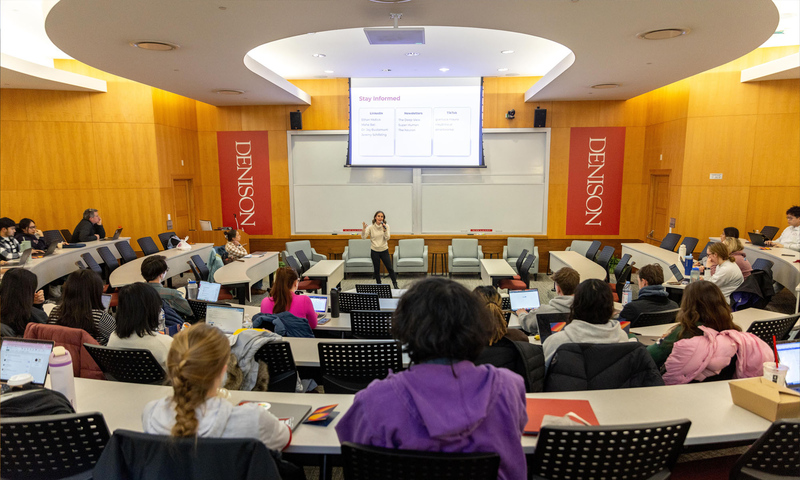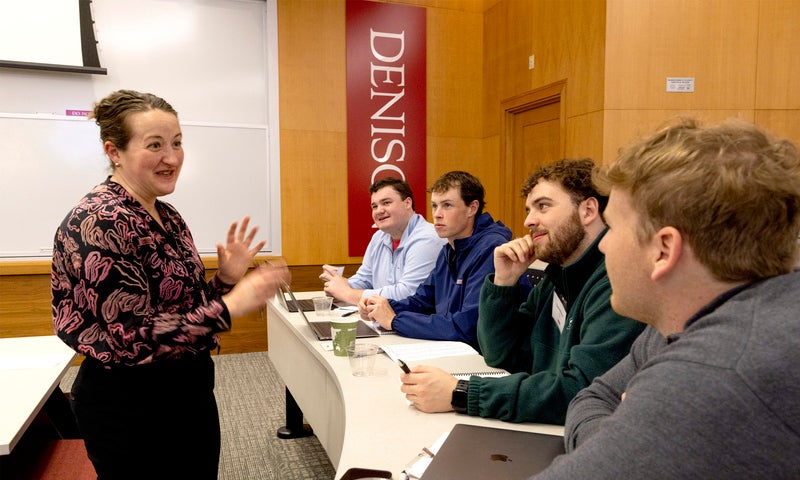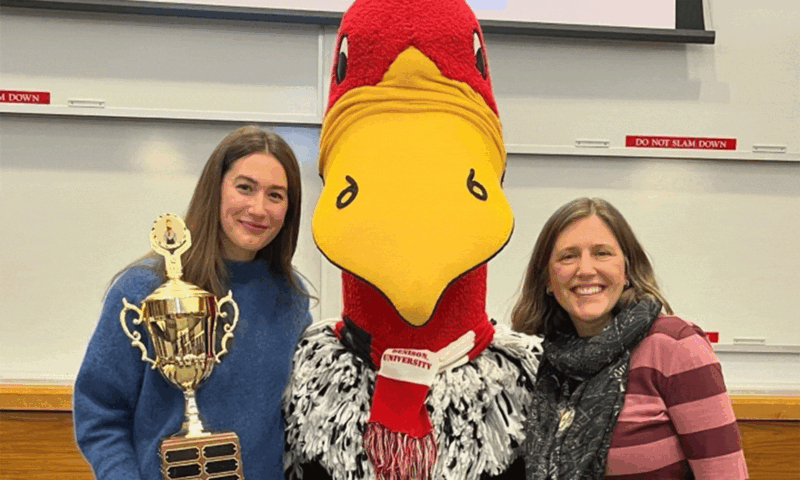Employers and entrepreneurs are finding that liberal arts graduates have what it takes to succeed in today’s professions. As new information from Bloomberg shows, forward-looking executives are investing in creativity and adaptability.
Author Andrea Gabor notes, “just as states and school districts add new technology requirements and open STEM-oriented schools, leading technology companies are heading in the opposite direction, forming partnerships with liberal-arts colleges and seeking to hire their graduates.
This is further proof of the value of liberal arts in an increasingly complex, global and technological world. Denison students build a broad array of capabilities that will support them in a multitude of careers. Creativity is enhanced through challenging classroom discussions and exposure to an expanse of arts and humanities that reach across the campus. Technological and professional know-how are gained through dynamic majors such as data analytics and global commerce. And so-called “soft skills” such as problem solving, team building, and communication, are gained in every aspect curriculum.
The college’s design-thinking space, the Red Frame Lab, is especially tailored to reinforce the entrepreneurial competencies that are naturally gained through a liberal arts education. One example of Denison’s success in this area is the college’s ReMix Summit, a regular event that connects alumni and student entrepreneurs.
It has become clear that building something new from the ground up, as entrepreneurs do, takes classic liberal arts skills, habits, and networks. Entrepreneurs understand how to connect ideas and people. Enterprising people analyze issues and learn from mistakes as they design and build new products, businesses, and services.
How the liberal arts build entrepreneurs
- Through in-depth research, students learn how to analyze problems from a 360° vantage point — and find new and innovative solutions.
- Relationships — with professors, peers and alumni — last a lifetime and are the foundation of a powerful network.
- Students learn how to work and communicate with people diverse groups of people.
- From a breadth of classes across the liberal arts and sciences, students learn to research, assimilate, and implement important knowledge — from building a financial model, to the science behind the latest technology innovation.
- With hundreds of opportunities for leadership and teamwork, students learn to put together the right people for their team — and how to lead them effectively.
- Students build tenacity and persistence — two of the most importance qualities of an entrepreneur — through challenging academics, highly competitive athletics, and demanding work in the arts.

